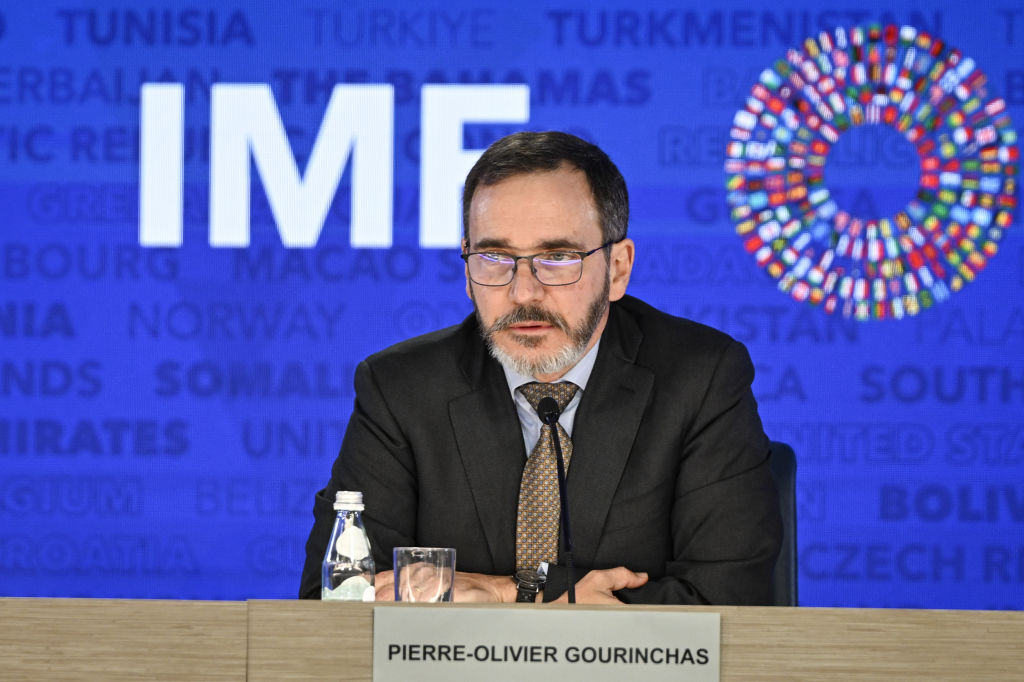IMF hikes eurozone growth forecast despite ‘elevated’ economic uncertainty
The Fund now expects Germany, France, and Spain to all grow faster this year than previously forecast

The International Monetary Fund (IMF) lifted its growth forecast for the eurozone on Tuesday, as it warned that policy uncertainty and general geopolitical tensions continue to pose major risks to the economic outlook, both within and outside the single currency area.
The 20-country eurozone is now expected to grow by 1.2% this year, up from the 1% predicted by the IMF in its July forecast. The upgrade was partly driven by the €1 trillion infrastructure and defence spending announced earlier this year by Germany, the bloc’s manufacturing powerhouse and largest economy, whose expected rate of expansion increased from 0.1% to 0.2%.
France, which is currently mired in a political crisis that has seen five prime ministers appointed since 2024, also saw its predicted expansion rise by 0.1 percentage point to 0.6%.
Spain, the main driver of euro area growth in recent years, saw its forecast increase by an even greater 0.4 percentage points to 2.9%. Italy’s expected growth remained unchanged at 0.5%.
The Fund similarly increased its growth forecast for the world economy by 0.2 percentage points, to 3.2%, with a slight uptick in the US’ growth forecast to 2% also contributing to the upward global revision.
The announcement comes as high energy prices, slowing Chinese demand, and US President Donald Trump’s sweeping tariffs have largely been offset in recent months by Germany’s fiscal stimulus and the delayed impact of interest rate cuts by the European Central Bank on eurozone investment and consumption.
ECB cuts interest rates but leaves 2025 growth forecast unchanged
The European Central Bank (ECB) cut interest rates but left its eurozone growth projection for…
3 minutes

Despite Tuesday’s upward revision, the IMF warned that the outlook for the eurozone remains highly unpredictable.
“Elevated uncertainty on multiple fronts and higher tariffs” represent the main downside risks, the Fund noted, adding that this has only been “partially offset” by Germany’s fiscal stimulus.
Underscoring this point, the Fund cut its growth outlook for the eurozone for 2026 from 1.2% to 1.1%, with France also seeing its forecast trimmed from 1% to 0.9%.
The Fund also warned that risks to the global economy “remain tilted to the downside”, with high debt levels, Trump’s attacks on the US Federal Reserve, and a potential “abrupt repricing of tech stocks” – which are currently near record highs – all posing significant dangers.
It also said that China’s economic prospects “remain weak” despite its forecast expansion remaining unchanged at 4.8% this year, with deflation, high debt levels, and a continued property slump all impacting growth in the world’s second-largest economy.
However, the IMF said that easing trade tensions and potential AI-driven productivity gains could pose “upside” risks to the global economy.
“While downside risks dominate, all is not gloomy,” wrote IMF chief economist Pierre-Olivier Gourinchas, adding that “cooperation in the face of global challenges remains the bedrock upon which to build a more prosperous and resilient global economy.”
(mm)









